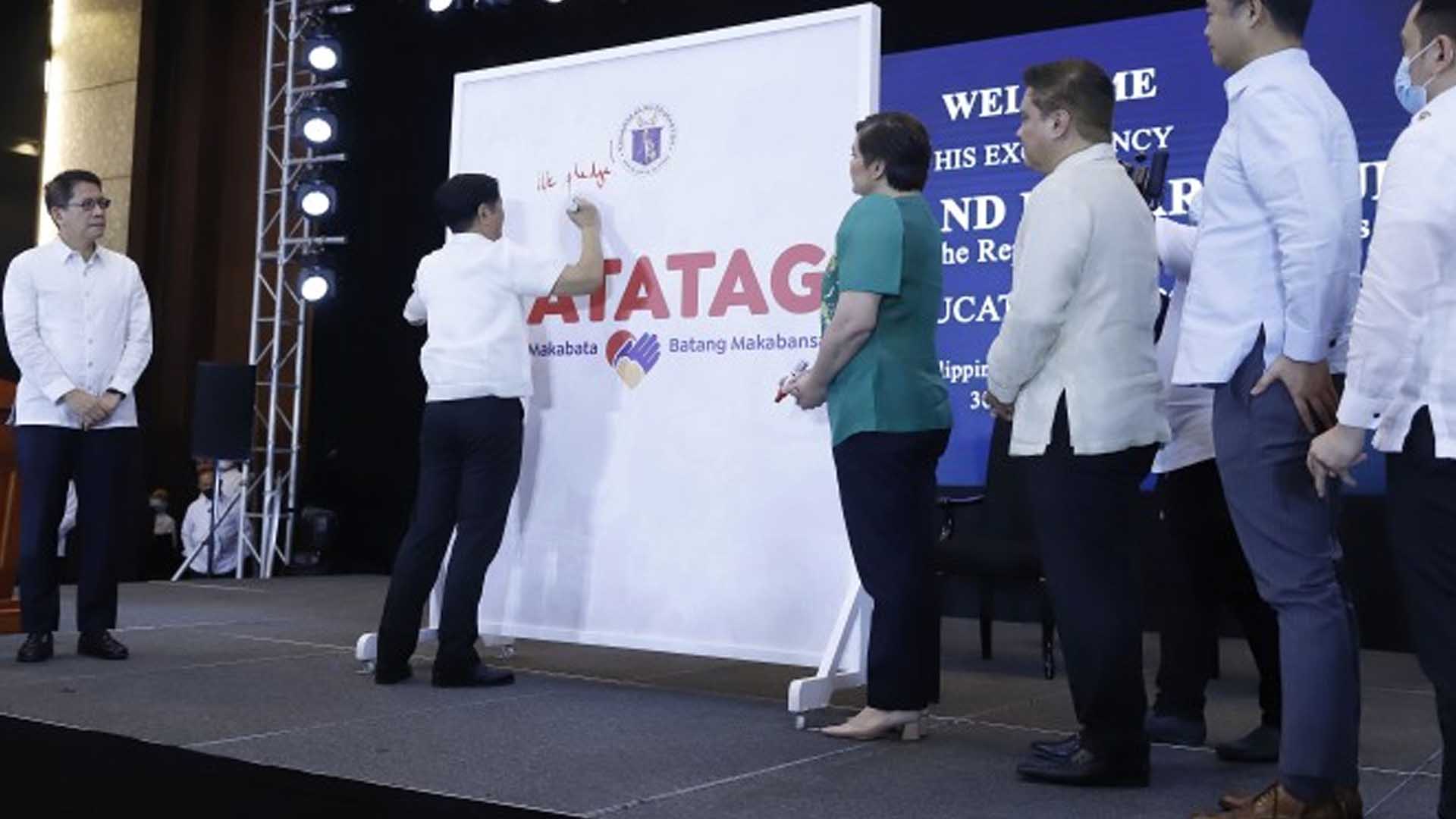Department of Education (DepEd) officials on Thursday clarified that the MATATAG Curriculum, which aims to decongest basic education competencies, was established not just to improve Filipino learners’ performance in international assessments like the Programme for International Student Assessment (PISA), but to improve their overall performance.
DepEd spokesperson Undersecretary Michael Poa said the revised curriculum is a product of a review of the current K-12 curriculum made by more than a thousand basic education experts from the government, private sector, and abroad.
“So, iyong MATATAG Curriculum, although hindi naman iyong PISA talaga ‘yung nag-trigger sa kanya (the MATATAG Curriculum, although it was not triggered by PISA), there was really a need to review our curriculum. Of course, we are expecting that the MATATAG Curriculum also helps improve our performance in international assessments,” Poa said in a press briefing at Malacañang in Manila.
Poa was responding to the question if the establishment of the MATATAG curriculum was timely considering that the number of subjects was decreased.
MATATAG stands for “Make the curriculum relevant to produce job-ready, Active and responsible citizens; TAke steps to accelerate the delivery of basic education services and provision facilities; TAke good care of learners by promoting learner well-being, inclusiveness learning, and positive learning environment; and, Give support for teachers to teach better.”
The Philippines ranked 77th out of 81 countries in the recent PISA 2022 with scores of 355 in Math, 347 in Reading, and 373 in Science.
Insisting that the establishment of the MATATAG Curriculum is timely, DepEd Undersecretary Gina Gonong pointed out that it is not about the number of competencies but selecting the important ones that learners need to master.
“So ngayon, kung nagra-rush ang teacher sa pagtuturo dahil sobrang dami ng competencies, hindi rin matuto iyong mga bata. So, iyong mga skills na dapat na-develop sa kanila, hindi ma-develop. So, pagdating sa mga assessments hindi nila mapakita na kaya nila iyong mga international at saka national assessments natin (So now, if the teacher rushes to teach because there are a lot of competencies, children will not learn. So, their skills that should be developed will not be developed. So, when it comes to assessments, they will not be able to show that they can succeed in international and our national assessments),” Gonong explained.
Poa and Gonong also made it clear that the MATATAG Curriculum’s learning outcome will not be realized anytime soon.
“We have to remind the public that these changes, you know, seeing the results of learning outcomes takes time. It’s not as if we change the curriculum now and we’re expecting better results by next year. So, it will really take time. For example, phase implementation pa lang iyong ating MATATAG Curriculum (The MATATAG Curriculum is still in phase implementation),” Poa said.
Gonong said if the MATATAG Curriculum begins this year for phase implementation, the first batch of will be on 2037 or 2038.
During the 2022 PISA National Forum last year, Vice President and Education Secretary Sara Z. Duterte assured the state of education in the Philippines is being addressed by the DepEd.
Duterte said the result of the international assessment has actually provided them with valuable insights into the strengths and weaknesses of the education system.
She also rallied all education stakeholders to join DepEd in addressing the issues on learning among Filipino children. (PNA)






